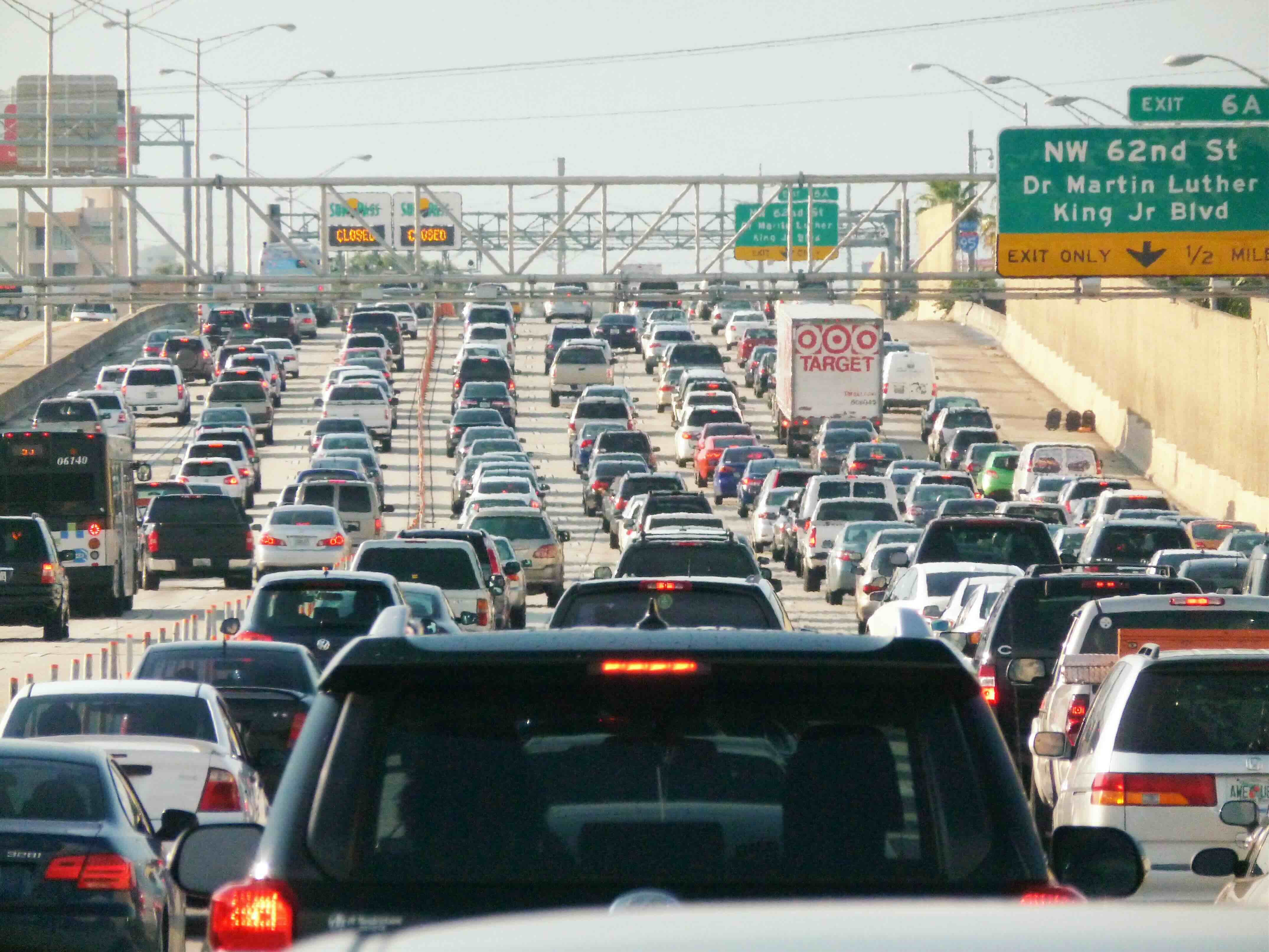Have a story idea
Have a story idea? Send it to us here.

Source : Wikimedia
March 8, 2025
Author : Patty Allen
Traffic congestion on U.S. highways is costing Americans more than ever, with delays adding up to a staggering $108.8 billion in economic losses.
A newly released report from the American Transportation Research Institute (ATRI) has identified the worst truck bottlenecks in the country, highlighting how clogged roadways are hindering the movement of goods and driving up transportation costs.
According to the 2025 ATRI report, one of the worst chokepoints for truckers is in Nashville, Tennessee. The city’s Interstate 24/40 eastbound interchange with I-440 has ranked fifth on the list of the nation’s most congested trucking locations, climbing five spots from last year.
With trucks moving at an average speed of just 38.1 miles per hour- dropping to 27.2 miles per hour during peak hours- this stretch of highway represents a major obstacle for the trucking industry.
The ATRI study is proof of the immense financial burden caused by traffic congestion. “Delays inflicted on truckers by congestion are the equivalent of 436,000 drivers sitting idle for an entire year,” said ATRI President and Chief Operating Officer Rebecca Brewster. These slowdowns result in billions of dollars in additional costs, affecting both businesses and consumers.
Chris Spear, President and CEO of the American Trucking Associations, focused on how these bottlenecks disrupt supply chains and raise the price of goods, pointing out that the added costs eventually trickle down to everyday consumers in the form of higher prices.
Tennessee has emerged as a significant problem area for trucking congestion. The ATRI’s 2025 report includes seven highway locations across the state in its ranking of the top 100 worst truck bottlenecks. Along with the highly congested I-24/40 interchange in Nashville, two additional Nashville roadways made the list, along with four others in Chattanooga and Knoxville.
Here’s where Tennessee’s most congested truck bottlenecks rank nationwide:
Each of these locations represents a major obstacle for freight movement, creating delays that impact businesses relying on just-in-time deliveries and increasing operational costs for trucking companies.
While Tennessee has received infrastructure funding from the federal government, it has not been enough to keep up with demand. The Infrastructure Investment and Jobs Act, passed in 2021, provided billions in funding for highway improvements nationwide. However, the Tennessee Advisory Commission on Intergovernmental Relations reports that the state’s highway funding needs have ballooned to $38.5 billion for the five-year period between June 2023 and June 2028.
This funding shortfall has made it difficult to address the most pressing transportation issues. With trucking bottlenecks worsening, the economic impact of congestion will continue to rise unless significant infrastructure improvements are made.
The trucking industry plays a crucial role in moving goods across the country, making efficient highways essential for economic stability. When major highways become congested, the entire supply chain is affected. Delays in freight shipments can lead to stock shortages, production disruptions, and increased costs for businesses.
These congestion-related challenges are particularly concerning for industries that rely on timely deliveries, such as retail, manufacturing, and agriculture. Truckers stuck in traffic not only lose valuable time but also face higher fuel costs, increased wear and tear on vehicles, and reduced driver productivity.
Transportation experts argue that states should take proactive measures to reduce congestion and improve the flow of freight traffic. Expanding highway capacity, improving traffic management systems, and investing in alternative transportation routes are some of the strategies that could help alleviate bottlenecks.
One approach is investing in intelligent transportation systems (ITS), which use real-time traffic data to optimize roadway usage and reduce delays. Additionally, infrastructure projects that focus on widening highways, enhancing interchanges, and creating dedicated truck lanes can significantly improve efficiency for freight movement.
Improving highway infrastructure is not just about reducing traffic; it’s about ensuring businesses can operate smoothly, goods reach their destinations on time, and consumers don’t face unnecessary price increases due to supply chain disruptions. Without decisive action, the cost of congestion will only continue to rise, placing a heavy burden on the trucking industry and the economy as a whole.
Category :
